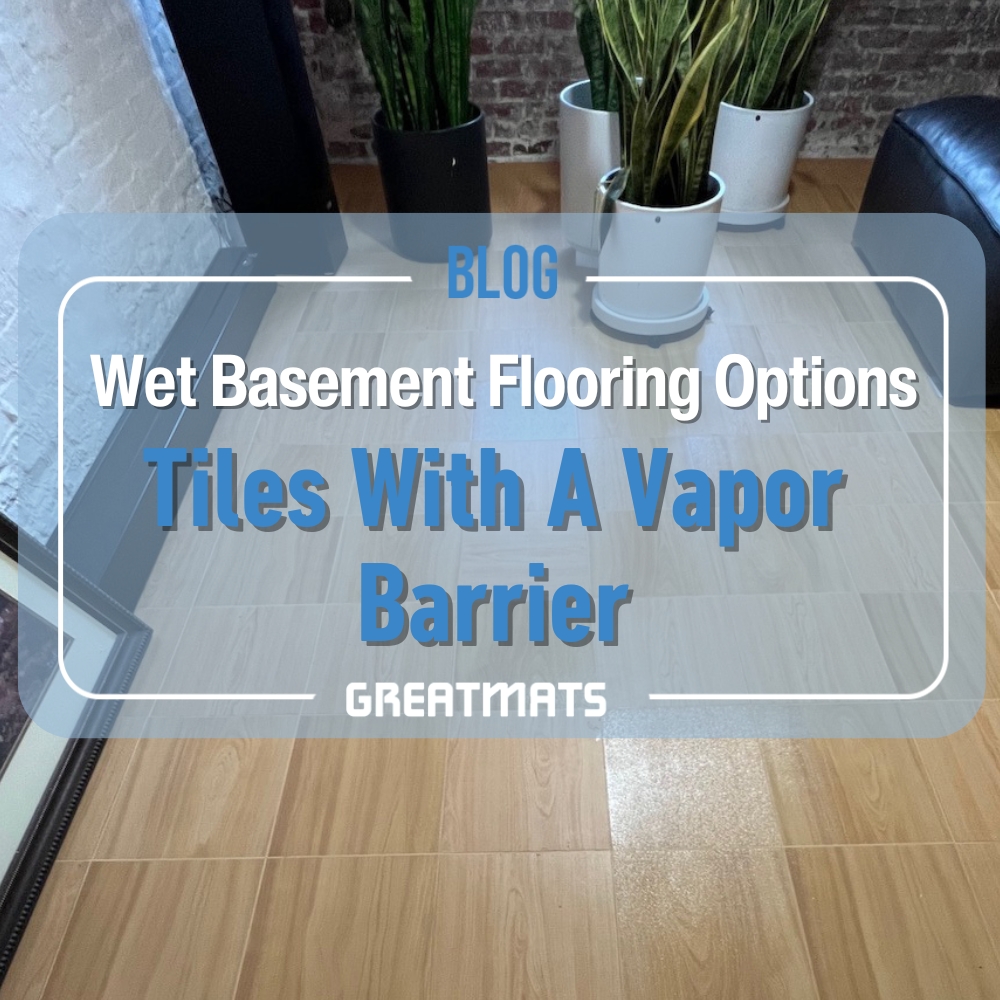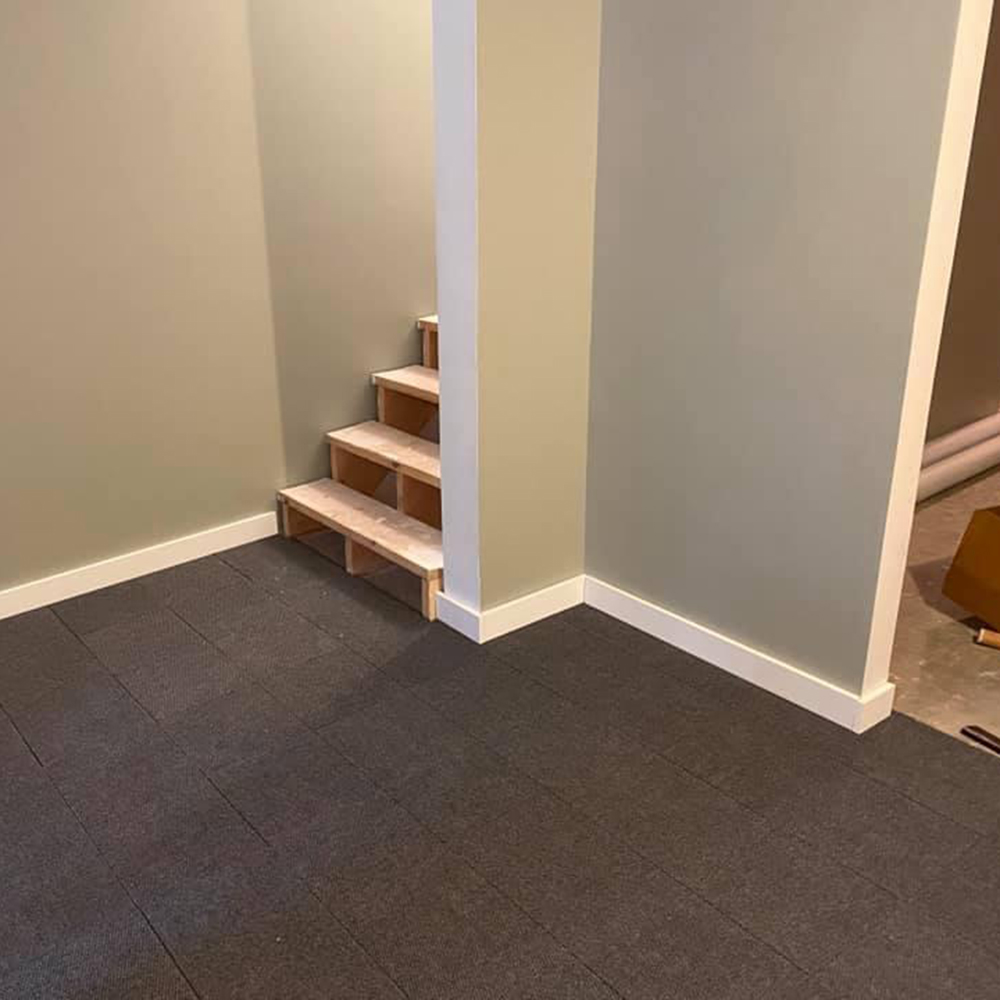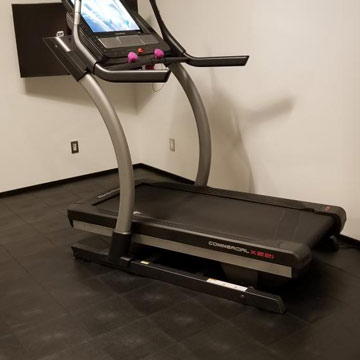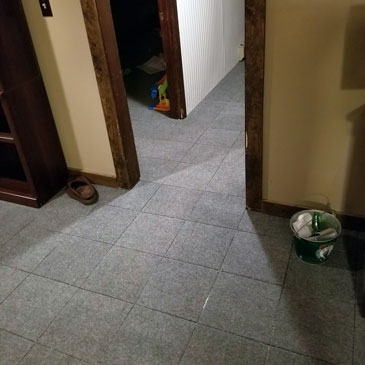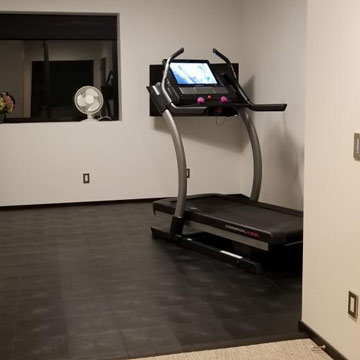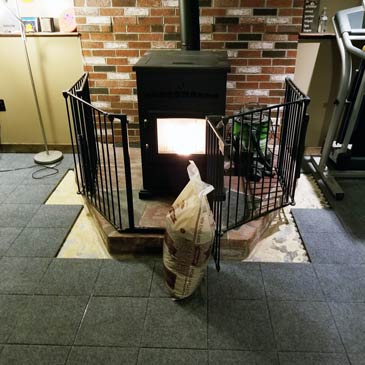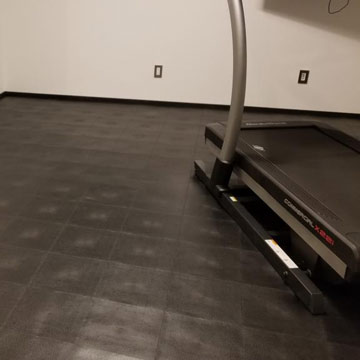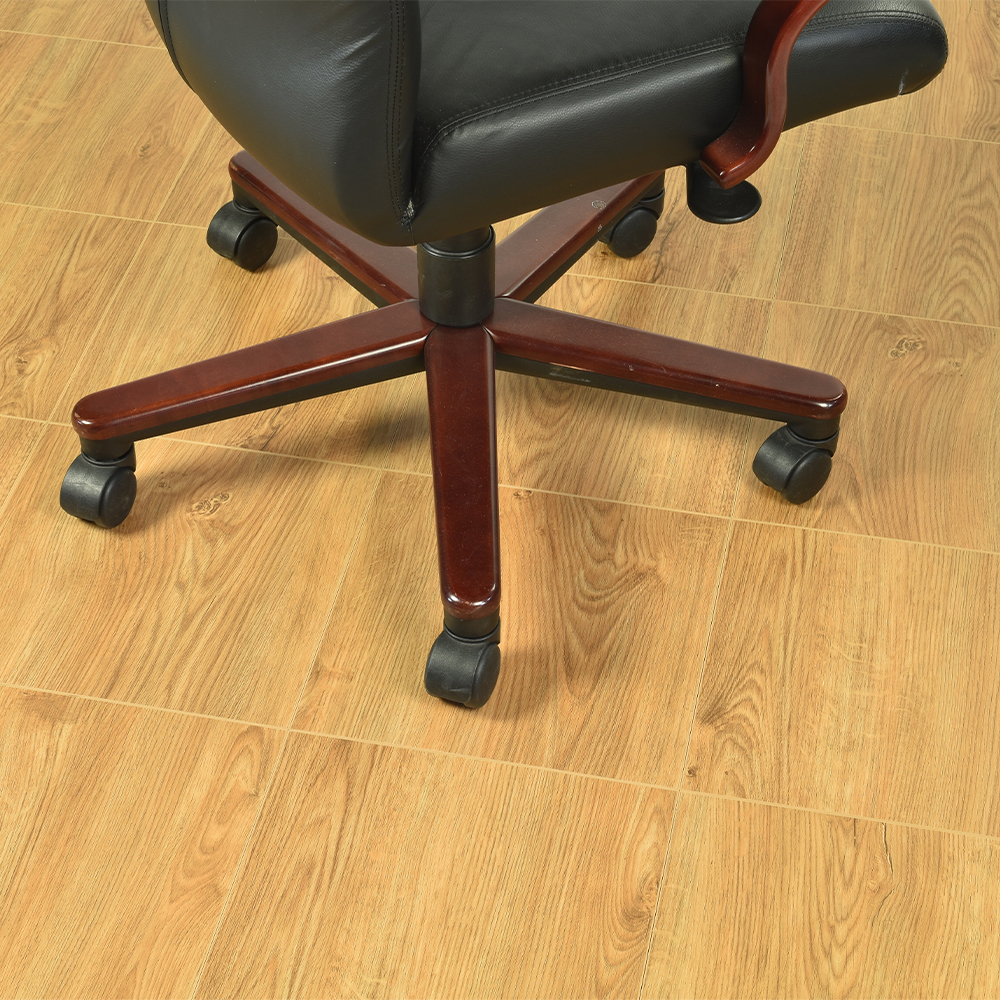Wet Basement Flooring Options: Tiles With A Vapor Barrier
Related Product: Max Tile Raised Floor Tile 5/8 Inch x 1x1 Ft.
Solutions to basement moisture may be necessary because of various factors, including floods, roof runoff, condensation, and permeation.
Most basement foundations are made of concrete. While highly durable and readily available, concrete does have flaws. One of which is its porous nature. Concrete allows water vapor to permeate through it, which becomes especially troubling as it ages and begins to crack.
The Problem With Basement Moisture
Hardwood and fiberboard are generally discouraged as a basement flooring options as they will absorb moisture, expand, warp and rot. They can also harbor mold and mildew, creating a hazardous environment for your home and family, tainting air quality and possibly causing structural damage. Flooring made with organic materials will need to be replaced in the event of flooding or persistent moisture.Keep in mind that just because a flooring material may be waterproof, it doesn't necessarily mean that it is one of the best wet basement flooring options. Some waterproof basement flooring may not be damaged by water or moisture but may trap water underneath the floor if not installed correctly. This can create the same mold and mildew issues as wood and carpeting.
Wet Basement Floor Solutions
There are several methods of battling the problem of basement moisture, including landscaping, creating vapor barriers, and installing raised floor tiles with a vapor barrier. While proper landscaping can direct rainwater away from your house, it doesn't always solve the problem of water vapor. In extreme cases, such as flooding, a sump pump may be a necessity. Vapor barriers typically involve sealing your concrete walls and/or floor with coatings of paint or adhesives. It can also involve large sheets of felt or plastic but floor tiles with vapor barrier properties are a much simpler solution.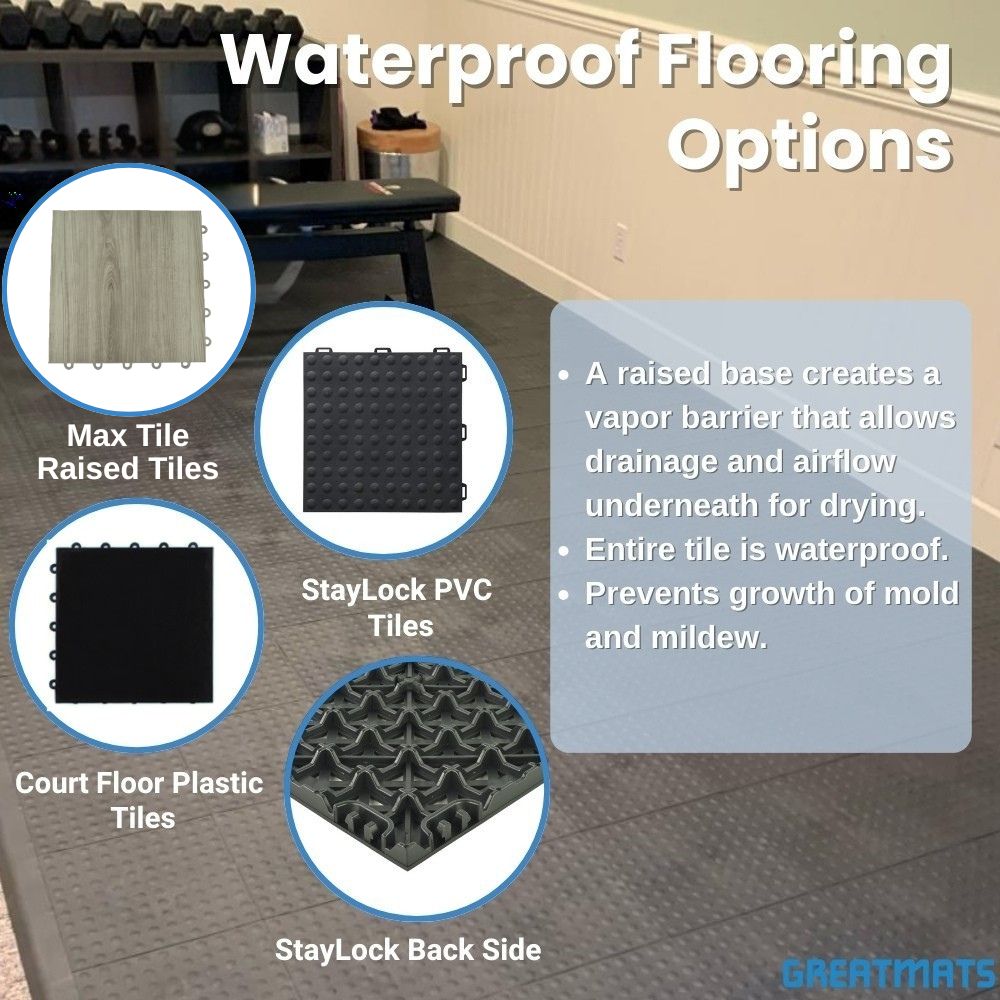
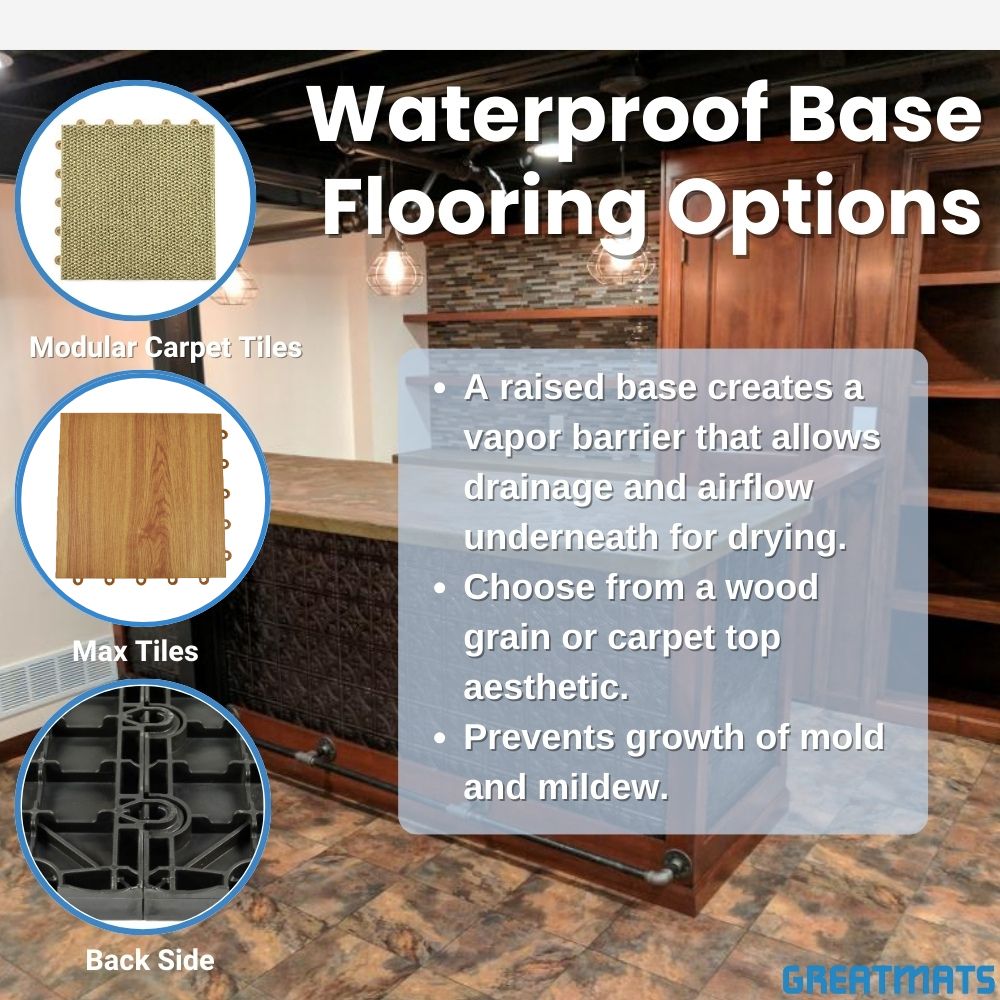
Why Raised Flooring for Wet Basements?
Raised basement flooring with a built-in vapor barrier prevents moisture from becoming trapped by creating a gap between your flooring and the concrete. Air flows under the floor, allowing the moisture to dissipate without having to remove your flooring at each occurrence of moisture buildup. Who has the time to check for trapped moisture on a regular basis?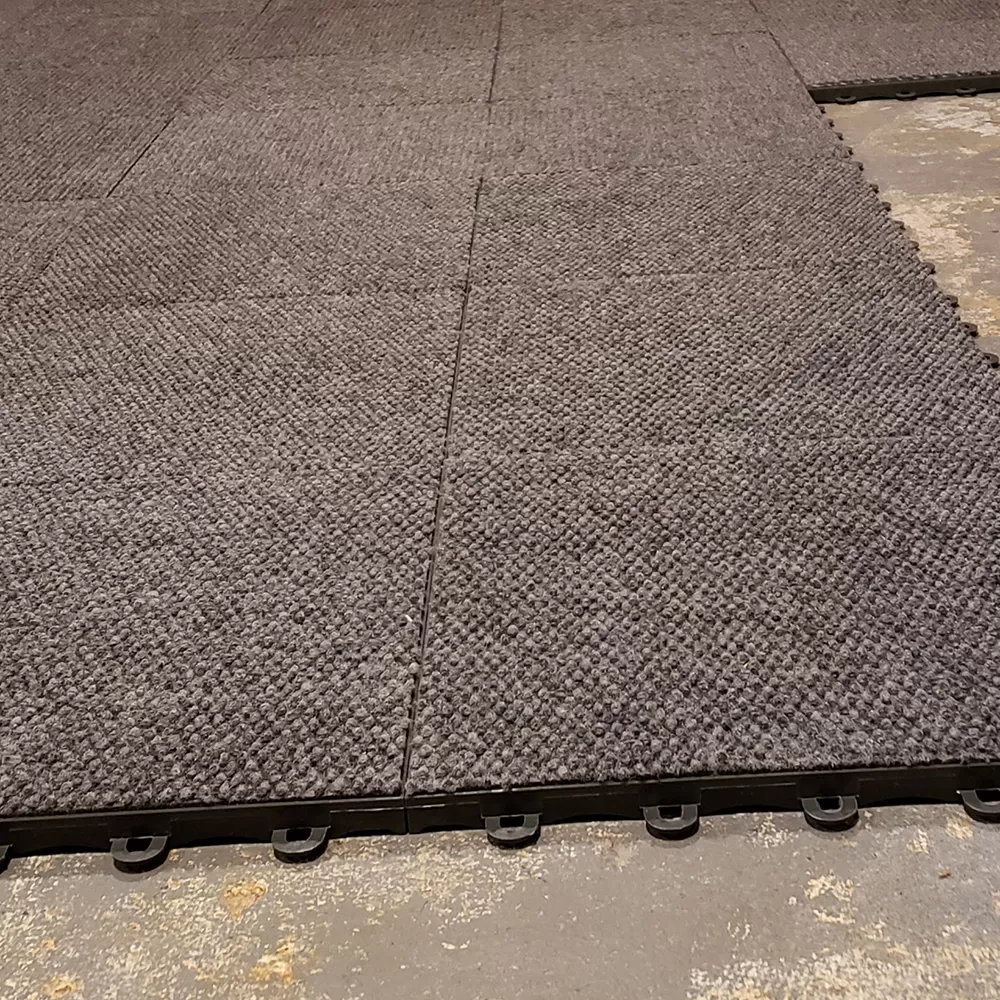 One of the simplest ways to create a raised floor is to purchase flooring tiles designed just for that purpose. Most of these floating interlocking basement flooring tiles with a built-in vapor barrier feature a waterproof plastic base with holes or channels that allow for air movement. Some even offer a perforated top that permits airflow horizontally and vertically. Most raised waterproof basement flooring tiles with a built-in vapor barrier also have some form of interlocking system that will allow for easy installation, removal, and re-installation without damaging the flooring. Below, we'll identify some of the top forms of basement raised floor tiles you can use to convert your damp basement into a home gym, family room, or kids' play area.
One of the simplest ways to create a raised floor is to purchase flooring tiles designed just for that purpose. Most of these floating interlocking basement flooring tiles with a built-in vapor barrier feature a waterproof plastic base with holes or channels that allow for air movement. Some even offer a perforated top that permits airflow horizontally and vertically. Most raised waterproof basement flooring tiles with a built-in vapor barrier also have some form of interlocking system that will allow for easy installation, removal, and re-installation without damaging the flooring. Below, we'll identify some of the top forms of basement raised floor tiles you can use to convert your damp basement into a home gym, family room, or kids' play area.
Note: Waterproof does not mean Watertight. Interlocking raised floor tiles will have seams; if water is on top of the tiles, water may leak through the seams.
Raised Floor Tiles for Use in Damp Basements
Basement Carpet Tiles With Waterproof Base - Family Room & Bedrooms
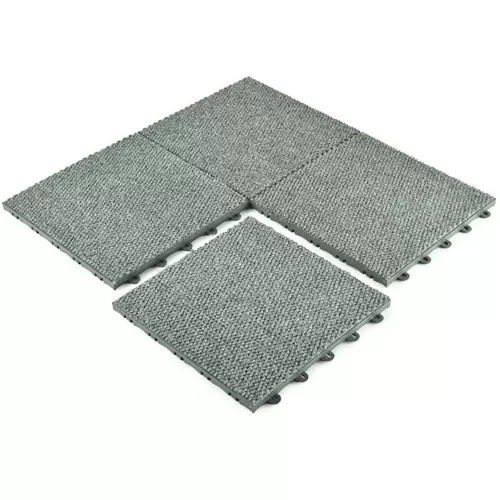 If you are set on turning your basement into a carpeted family room, but fear the moisture will cause problems, raised carpet tiles are your answer. You'll want to find a raised carpet tile with a plastic base material. Greatmats offers Carpet Tiles Modular Squares that feature a polypropylene base topped with a recycled content ribbed carpet. It is made of the same materials as active wear, known for the ability to transport moisture away from the body. Meanwhile, the waterproof raised base installs easily over concrete and other hard, flat surfaces and keeps the carpet out of standing water, giving you the ideal carpeting system that is the best flooring for basement installations.
If you are set on turning your basement into a carpeted family room, but fear the moisture will cause problems, raised carpet tiles are your answer. You'll want to find a raised carpet tile with a plastic base material. Greatmats offers Carpet Tiles Modular Squares that feature a polypropylene base topped with a recycled content ribbed carpet. It is made of the same materials as active wear, known for the ability to transport moisture away from the body. Meanwhile, the waterproof raised base installs easily over concrete and other hard, flat surfaces and keeps the carpet out of standing water, giving you the ideal carpeting system that is the best flooring for basement installations.
PVC Raised Tiles - Den or Man Cave Floor
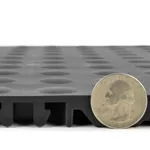 Create your very own sports den or man cave complete with a rugged yet comfortable waterproof basement flooring tiles with a built-in vapor barrier designed for home gyms. These PVC raised tiles offer a raised base and bump top surface texture. They are 100 percent waterproof and offer excellent anti fatigue properties, taking the unforgiving nature out of raised basement flooring installed over concrete.
Create your very own sports den or man cave complete with a rugged yet comfortable waterproof basement flooring tiles with a built-in vapor barrier designed for home gyms. These PVC raised tiles offer a raised base and bump top surface texture. They are 100 percent waterproof and offer excellent anti fatigue properties, taking the unforgiving nature out of raised basement flooring installed over concrete.
Max Tiles - Basement Dance and Fitness Area Floor Tiles
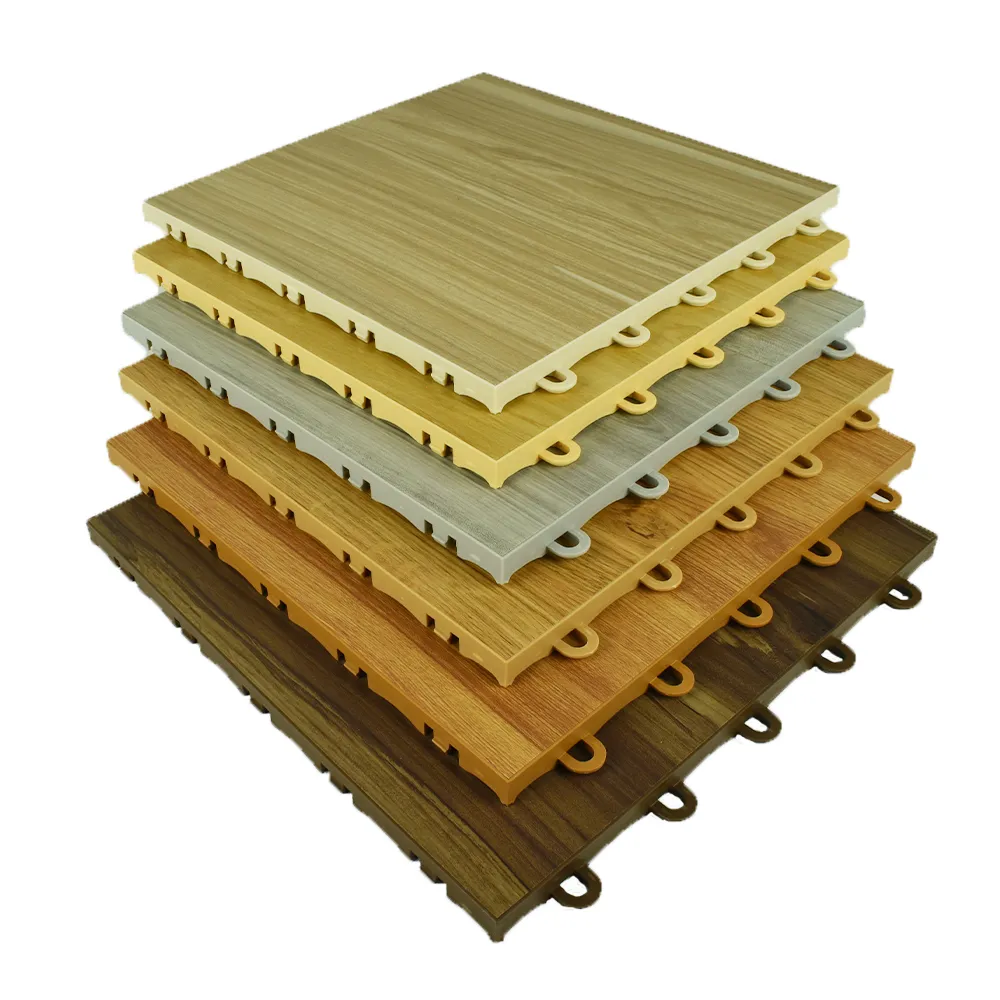 Give your basement family space a wood or stone floor look with Max Tile Raised Floor Tiles. These tiles feature a waterproof raised plastic base topped with a commercial-grade vinyl surface. Extremely versatile, Max Tile floors are popular for basements, game rooms, and family rooms as well as dance floors, aerobic and exercise flooring, and showroom floors. They also have the option of ramped border edging.
Give your basement family space a wood or stone floor look with Max Tile Raised Floor Tiles. These tiles feature a waterproof raised plastic base topped with a commercial-grade vinyl surface. Extremely versatile, Max Tile floors are popular for basements, game rooms, and family rooms as well as dance floors, aerobic and exercise flooring, and showroom floors. They also have the option of ramped border edging.
Flexible Interlocking Basement Floor Tiles for Kids Play Areas
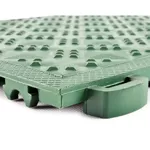 Design a colorful kids play area with raised basement flooring tiles with a built-in vapor barrier like the Ergo Matta CushionTred tiles from Greatmats. Available in eight colors, these waterproof basement flooring tiles made of Rubber and PVC offer excellent sound-dampening qualities and have a non-slip diamond shield tread design.
Design a colorful kids play area with raised basement flooring tiles with a built-in vapor barrier like the Ergo Matta CushionTred tiles from Greatmats. Available in eight colors, these waterproof basement flooring tiles made of Rubber and PVC offer excellent sound-dampening qualities and have a non-slip diamond shield tread design.
StayLock Tiles - Basement Workshop Flooring
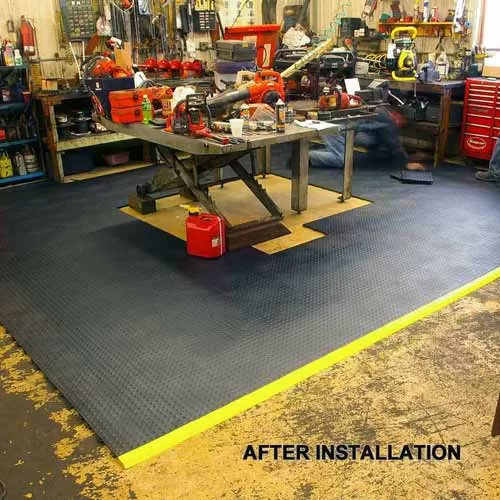 If you use your basement as a workshop, StayLock Bump Top Tiles durability and anti-fatigue properties can make your space much safer and more user friendly. Made of durable recycled PVC, they are also waterproof, resistant to most acids and oils and easy to clean. In addition to the bump top surface, StayLock tiles are also available with orange peel and perforated surfaces. To top it off, multiple color options are available to help you create interesting designs, patterns or color schemes.
If you use your basement as a workshop, StayLock Bump Top Tiles durability and anti-fatigue properties can make your space much safer and more user friendly. Made of durable recycled PVC, they are also waterproof, resistant to most acids and oils and easy to clean. In addition to the bump top surface, StayLock tiles are also available with orange peel and perforated surfaces. To top it off, multiple color options are available to help you create interesting designs, patterns or color schemes.
Drainage Tiles - Basement Bathroom Flooring
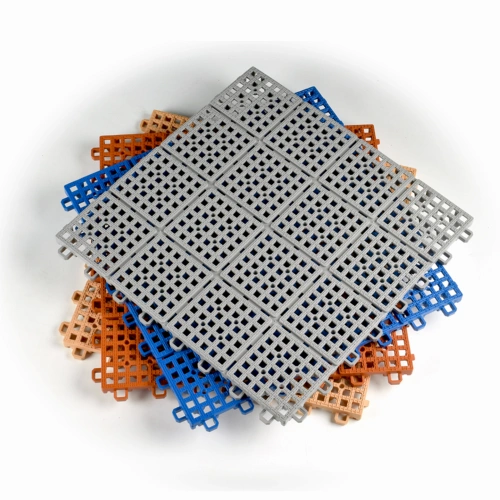 Accessorize your basement bathroom with perforated tiles like Patio Outdoor Tiles. These soft PVC tiles are designed specifically for wet areas such as showers. With a perforated top, the raised drainage basement flooring tiles allow water and air to flow through in any direction and will not absorb moisture.
Accessorize your basement bathroom with perforated tiles like Patio Outdoor Tiles. These soft PVC tiles are designed specifically for wet areas such as showers. With a perforated top, the raised drainage basement flooring tiles allow water and air to flow through in any direction and will not absorb moisture.
Drainage Tiles - Covering Your Dirt Floor
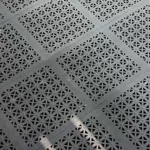 While most basements have a concrete foundation, some are dirt. But that doesn't mean you can't have a finished floor. It just means you may need to get a little more creative in the way you cover these surfaces.
While most basements have a concrete foundation, some are dirt. But that doesn't mean you can't have a finished floor. It just means you may need to get a little more creative in the way you cover these surfaces.
To install waterproof basement flooring over a dirt floor, you'll most likely want some sort of plastic perforated playground tile such as StayLock Perforated Tiles or Ergo Matta perforated tiles. These non-absorbent raised basement flooring tiles with built-in vapor barrier tiles are designed for outdoor use and are resistant to mold and mildew. They also offer fall protection that would make them fit for a basement play area. Perforated plastic tiles are flexible and interlock, allowing them to be placed on slightly uneven surfaces and prevent separation.
Find Wet Basement Flooring Solutions at Greatmats
Note: Foam and rubber basement flooring is also available, but may not be the best flooring for basements with water issues as most of these options sit flat against the existing flooring and can trap moisture.Now that you know what tools are available, go ahead and create a basement space you'll love. You'll be glad you did. Reach out to our knowledgeable flooring experts if you have any questions about the best solution for your space.
